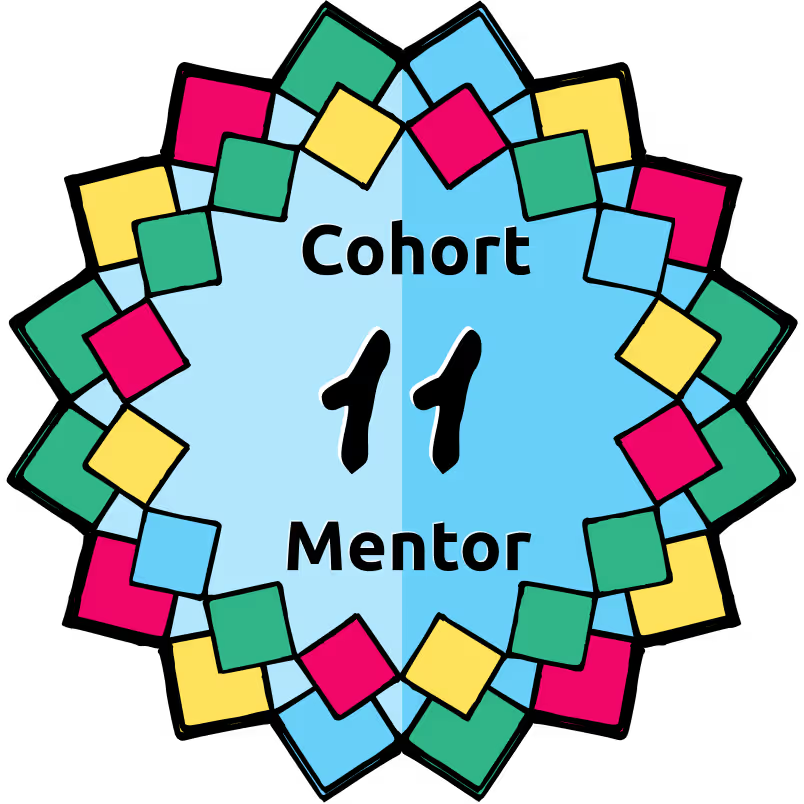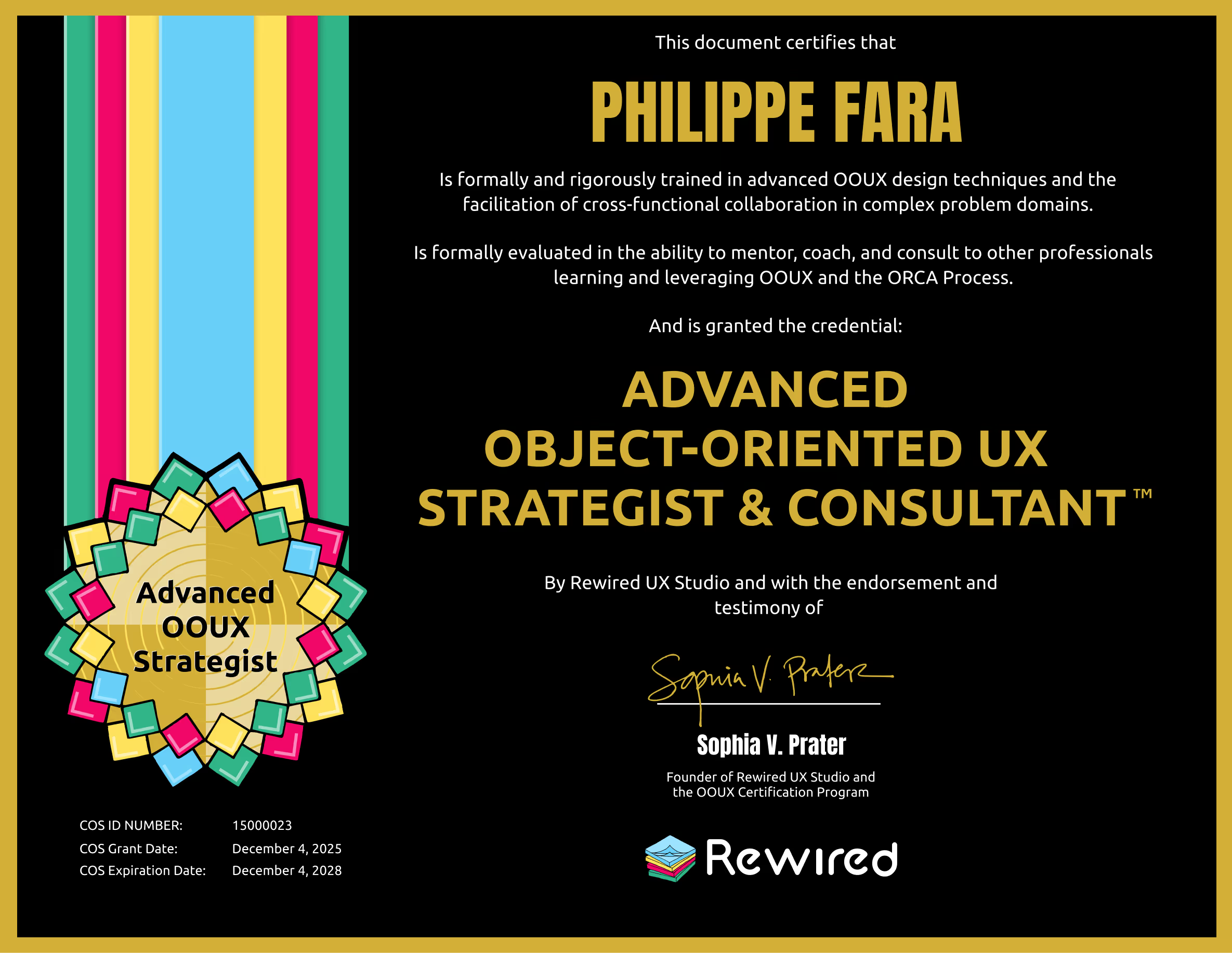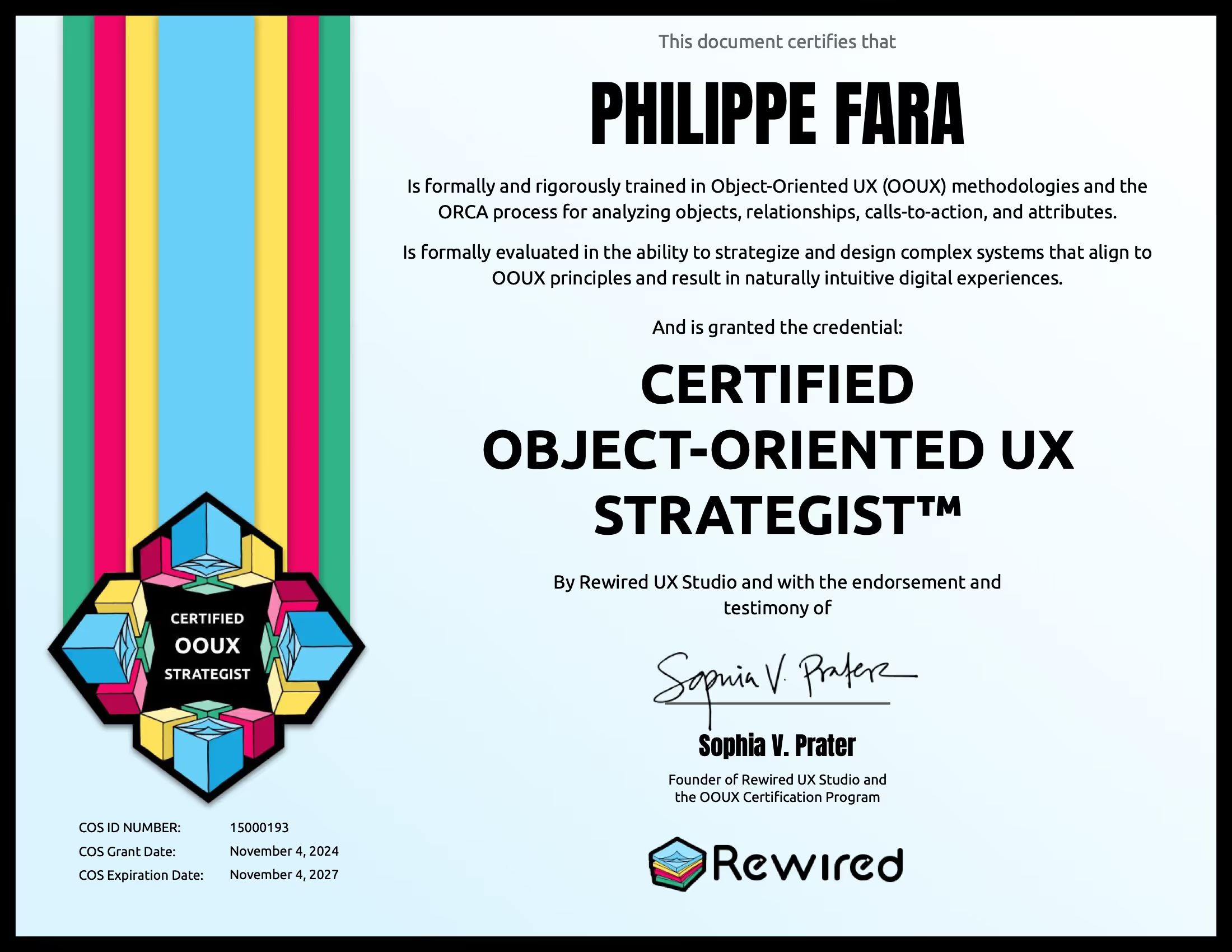Cookie Consent
By clicking “Accept”, you agree to the storing of cookies on your device to enhance site navigation, analyze site usage, and assist in our marketing efforts. View our Privacy Policy for more information.






Philippe was great! Always super friendly, provided good answers to my questions and his feedback forced me to think deeper about my work. He stayed an extra half hour with me multiple times on 1:1 calls and those really helped confirm and solidify my understanding of OOUX and the application for the switcheroo design challenge. Thanks for all your feedback and help Philippe!

Philippe helped me grasp challenging concepts by connecting them to real-world examples and sharing relevant experiences from his own background. He provided assignment feedback through thoughtful questions that pushed me to explore the material more deeply.

Throughout this process, Philippe has been a wonderful mentor. Even during a period of illness, he consistently replied promptly to my assignments and questions, always offering thought-provoking guidance that pushed my understanding of the course content in the context of my PicklePro Design Challenge. He has been very approachable, supportive, and easy to speak with at any stage of the journey. His insights and encouragement have made a difference to my experience, and I am grateful for his support.

When I joined the Advanced programme, I wanted to talk about objects in a way that felt intuitive to others, even if they weren’t aware of the OOUX lens behind it. I also wanted to take OOUX beyond digital products and use it to support broader strategic conversations.
The programme has helped me organise my thinking and communicate more flexibly. With leadership teams, I use OOUX to clarify decisions and focus discussions. With delivery teams, I can translate the same mindset into concrete objects, attributes, and relationships that guide the work.
The mentoring part has been a brilliant experience. It strengthened my understanding and gave me regular opportunities to practice explaining OOUX from different perspectives in simple, accessible ways. The programme is ideal for anyone who wants more gravitas when discussing and making sense of complex problems – whether they work in strategy, service design, content, UX, or delivery.

I've learned the hard way that building digital interfaces that have a design-first approach is not future proof. The OOUX certification has been a revelation, helping me seeing the world of users without blinkers on and really noticing the things that matter to them in their context and the context of the product I’m building. The ORCA methodology clicked for me in a way that made me want to redesign everything I'd ever worked on!But here's what really sets this certification course apart: the cohort community is exceptional. You get a mentor who’s going to give you personalised guidance that will challenge your thinking and share their expertise in ways that push you to explore more or look at things differently. I feel the mentors don't just teach – they inspire, encourage, and help you grow both professionally and personally. And then there's Sophia, whose magnetic enthusiasm for OOUX draws everyone in. She's everywhere in the community, sharing insights and cheering everyone on with genuine excitement.Fair warning: this is a hard course but it’s totally worth it. Once you start seeing the world in objects, you can't unsee it - and that's exactly what makes this course so brilliant.

After leading a major gov site launch, Philippe Fara is back to share how OOUX helped him deliver better outcomes with less chaos. From mastering the ORCA Process to mentoring others, he spills the tea on scaling UX strategy, building confidence, and making complexity intuitive.
FYI: This is an affiliate link (we earn a small kickback if you buy).

In this episode of the podcast, Sophia, Kate, and Philippe discuss using the ORCA process to raise user competency scores for the Renfrewshire Council website, how OOUX makes maintaining digital content easier, and why OOUX is a good investment for companies and governments.
FYI: This is an affiliate link (we earn a small kickback if you buy).


Work through the OOUX Masterclass with a cohort of other professionals. 1-on-1 coaching, personalized assignment reviews, office hours, and small-group study sessions. Finish with a valuable professional certification.
Learn more